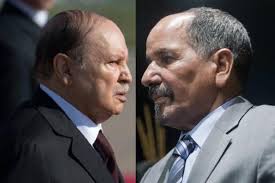
 The death, last Tuesday, of Mohamed Abdelaziz who headed the Polisario separatist for almost 40 years has raised a number of questions as to the future of the movement, which owes its existence to Algeria that sheltered and supported it, militarily, financially and diplomatically, for decades to use it in a proxy war against neighboring Morocco.
The death, last Tuesday, of Mohamed Abdelaziz who headed the Polisario separatist for almost 40 years has raised a number of questions as to the future of the movement, which owes its existence to Algeria that sheltered and supported it, militarily, financially and diplomatically, for decades to use it in a proxy war against neighboring Morocco.
For the optimists, the passing of Abdelaziz offers an opportunity for change. His successor “can open a new page in relations with Morocco and end one of the world’s most pointless stalemates. Placing the interests of the population first, he can free them to choose their own futures. He can negotiate a reunification of the territory — and reunite families long separated by a border of lethality,” stated Ahmed Charai, a Mid-East policy advisor in Washington, in a column published in the Huffingtonpost.com.
The decision may not be entirely in his hands: The Polisario is ultimately a proxy army of the Algerian military oligarchy — a pin they use to prick Morocco in an enduring, and equally tragic, Cold War. Here, of course, is where the courage of a real leader comes in — the true independence of conscience and mind that would serve his people and help secure the world, the columnist pointed out.
For the more pessimists, the passing away of Mohamed Abdelaziz will not bring forth any change, since the man was at the orders of Algerian Generals and rulers.
On the morrow of the death, a Moroccan official commented that the Polisario leader’s death is “a non-event” from the political standpoint and will have no impact on the Moroccan Sahara issue.
Mohamed Abdelaziz was, as his successor will be, an “extra and not the real actor in the Sahara issue, which was and which remains managed elsewhere,” said the Moroccan official, alluding to Algiers that retains overall control of this conflict that it had created in connivance of Moamar Gadaffi’s Libya in the early 70s, during the cold war era.
And since then, the civilian and military rulers of Algiers have used the Polisario leaders as puppets and have repeatedly hampered any consensual political settlement of the conflict and even prevented any direct contact between the separatists and Morocco.
As outlined by Mohamed Ali El Admi, aka Omar Hadrami, a former founding member of the Polisario, who quitted the Front and returned to Morocco years ago, the Algerian military oligarchy never allowed Mohamed Abdelaziz to get in touch with Morocco.
Yet, on his deathbed, Mohamed Abdelaziz, who battled lung cancer for over a year, confessed to his physicians at the Mayo clinic in Rochester, Minnesota, in the United States, and to his inner circle, that he had realized that his own beliefs had become “obsolete” and that the long-simmering conflict in the region was pointless.
The confessions were reported by a number of US news websites, including “US News & World Report” and “American Media Institute” (www.aminewswire.com) as well as by Spanish news website “lainformacion.com.”
According to these websites, Mohamed Abdelaziz said on the eve of his death that he felt “guilty” to have been involved in the regional Sahara conflict and that he regretted his alliance with Algeria.
“The dying leader also regretted his alliance with Algeria and felt guilty over the conflict,” wrote the author of the story entitled “Dying Sahara rebel leader regretted Algeria alliance.” “Algeria sheltered and supported the rebel Polisario Front for decades as part of a proxy war against the neighboring kingdom of Morocco,” it recalled, pointing out that “Algeria provided weapons, tanks, food, passports, and millions of dollars to the Polisario Front over the last four decades.”
According to the US news website, “in addition to his regrets, Abdelaziz reportedly made a surprising final request: that he be buried in Bir Lahlou, a small village in Morocco.”
The request is not that surprising since Abdelaziz was born in Marrakesh, Morocco, and his parents and family are living in their homeland Morocco.
Abdelaziz’s father, Khalili Ben Mohamed Al-Bachir Rguibi, was member of the Moroccan Army and is active in the Royal Advisory Council for Saharan Affairs.
The Polisario Front will choose a new secretary general at the end of the 40-day mourning, but analysts say there will be a single candidate in the election, and of course, the candidate will necessarily have the blessings of the Algerian oligarchy.
Unfortunately, this oligarchy only cares about its hegemonic aims and does not seem ready to address the situation of the thousands of Sahrawis forcibly held in the Tindouf camps and the human tragedy unfolding in these camps, in contempt of all humanitarian conventions and international law.
